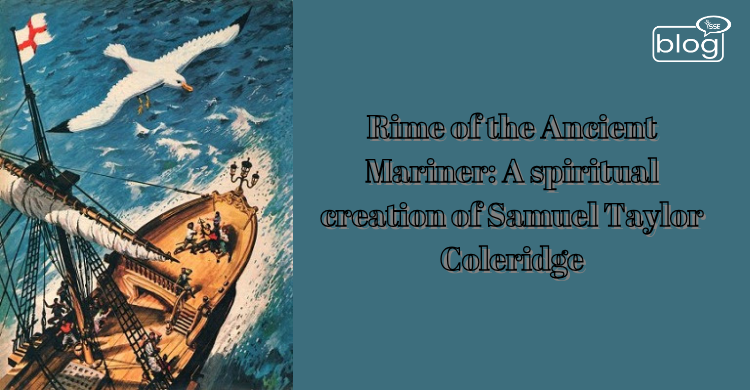The poem ‘The Rime of the Ancient Mariner’ by Samuel Taylor Coleridge combines supernatural elements with spiritual depth throughout its narrative. The Mariner of the modern literary world tells an 1800s tale through poetry following his reckless choice that leads through punishment and evolutionary spirituality. Throughout the narrative that follows the Mariner, the author demonstrates how humanity stands connected with earth and heavenly powers.
At the opening of the poem, the Mariner’s character is presented when he says
“It is an ancient Mariner,
And he stoppeth one of three.”
Thus, beginning his narrative of a burdened tale which he must convey. The Mariner halts one of three wedding guests while bidding them to listen. Through his story the Mariner teaches wisdom about what happens when people perform unladylike deeds.
A sea exploration serves as the main focus of the Mariner’s narrative where he discovers an albatross in the ocean alongside his shipmates. At the beginning of the tale the viewer sees the bird as a harbinger of prosperity. The Mariner demonstrates impatience when he fires his crossbow to kill the albatross, and this fateful act sets off damaging effects on their ship. The Mariner begins to regret his act when he repeats, “With my crossbow I shot the Albatross” and realizes his mistake has become impossible to undo. After the initial incident, the ship encounters devastating luck by getting snagged in stagnant waters. The crew directs their anger at the albatross, yet the Mariner’s inner remorse grows as thirst kills members of his crew. Through this poetic line
“Water, water, everywhere,
Nor any drop to drink.”
The speaker shows the strange feeling of being stranded without water resources.
Throughout his punishment, the Mariner develops serious spiritual problems. In his solitary state across the expansive ocean, the Mariner discovers the holy value of every living being. The Mariner notices ocean snakes swimming in the water and expresses admiration to them with these words-
“O happy living things! No tongue
Their beauty might declare.”
The mariner fails to find words that could adequately express their beauty. From this point forward the Mariner starts his path to salvation by developing a newfound respect for nature surrounding him. During this transformative phase he develops an understanding that every living being requires holy respect and sacred appreciation.
The Mariner will need more time before his redemption transforms his condition. Since his time as a sailor, he keeps handling the albatross he must carry, which stands for the burden of guilt he must continue to bear. His transformation into a redeemed person commences following his decision to tell his tale to everyone. The true lesson ends with these words:
“He prayeth well, who loveth well
Both man and bird and beast.”
Through spiritual insight the Mariner accepts responsibility from his mistakes. This warning together with its life lesson teaches the wedding guest to recognize why he should respect all existence.
The Rime of the Ancient Mariner by Coleridge exceeds standard adventure tales in that it shows a sacred meaning about human deeds and spiritual enlightenment leading to salvation. Through his spiritual growth, which results in environmental devotion, the Mariner becomes able to receive forgiveness. This poem establishes the meaning that people should value the holiness of existence and gain knowledge about the bond that connects every living creature.
The author delivers themes of guilt as well as punishment while using supernatural elements to create vivid imagery to express spiritual transformation. The Mariner’s voyage continues to depict human potential for evil conduct and the path to redemption which emerges from self-insight and nature appreciation. Atonement establishes its genuine beginning when persons comprehend the sacred nature of all living beings.
To read more blogs like this, click here
Writer,
Jemi Sailuk
Intern,
Content Writing Department,
YSSE.

